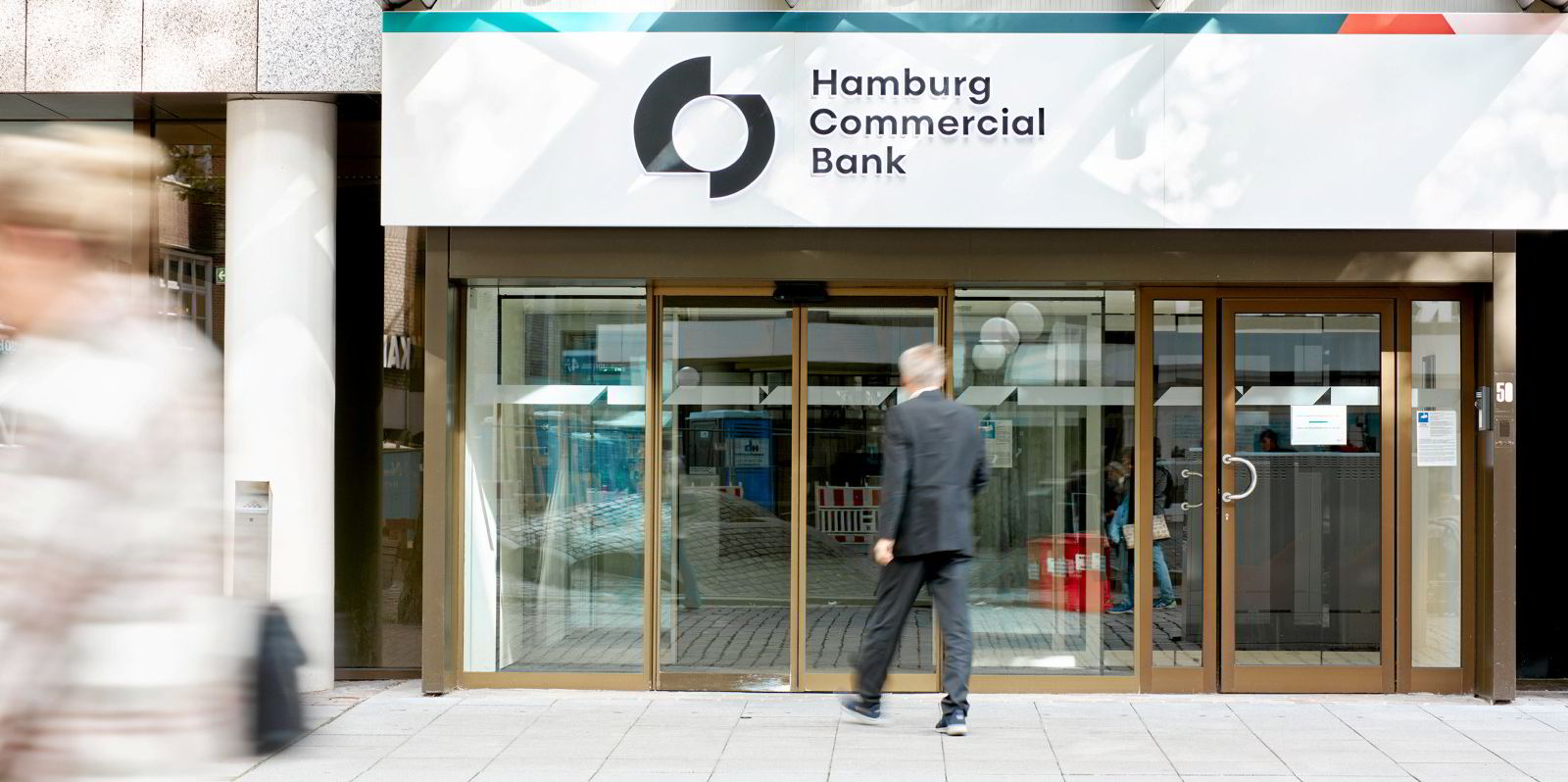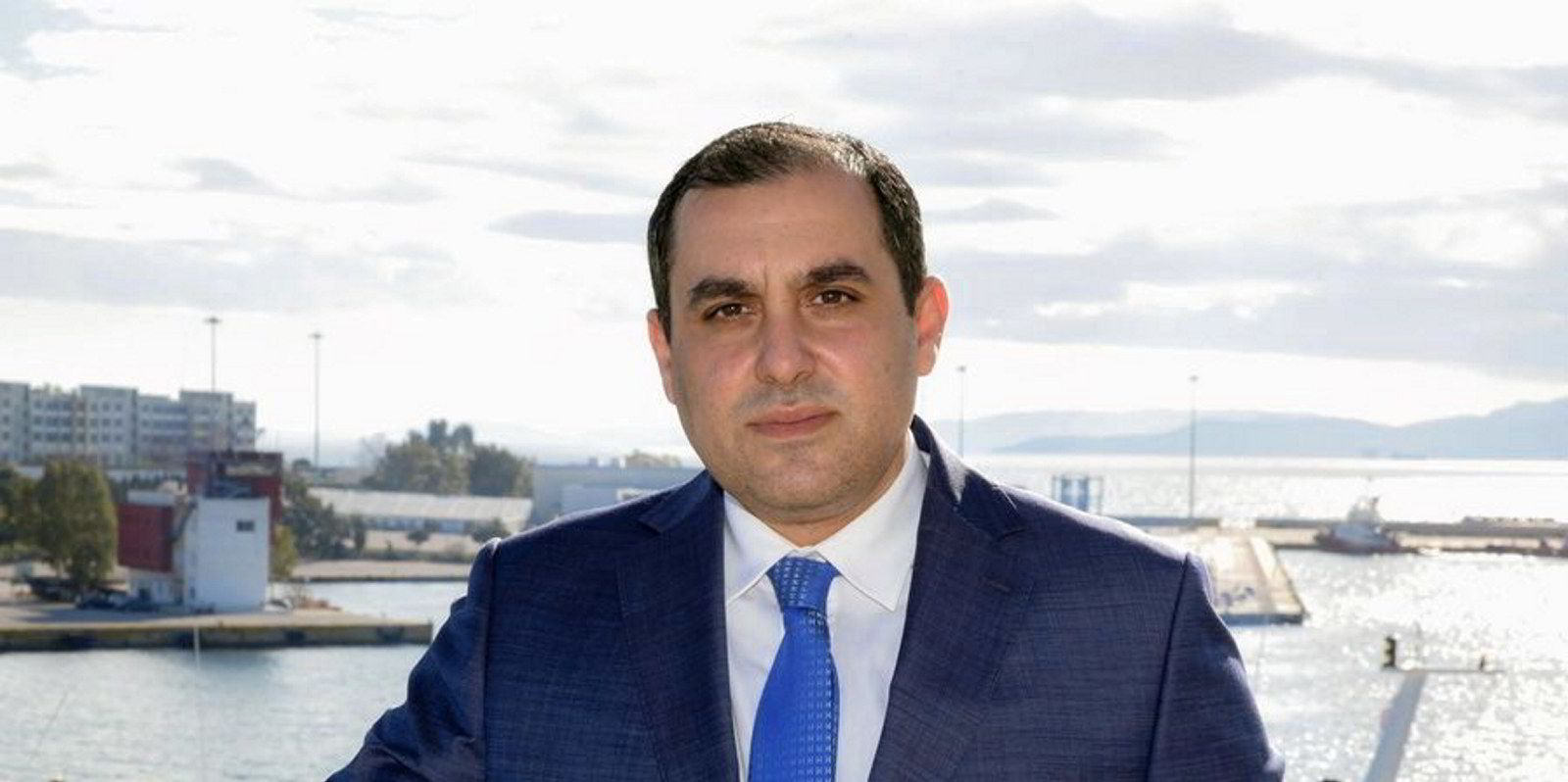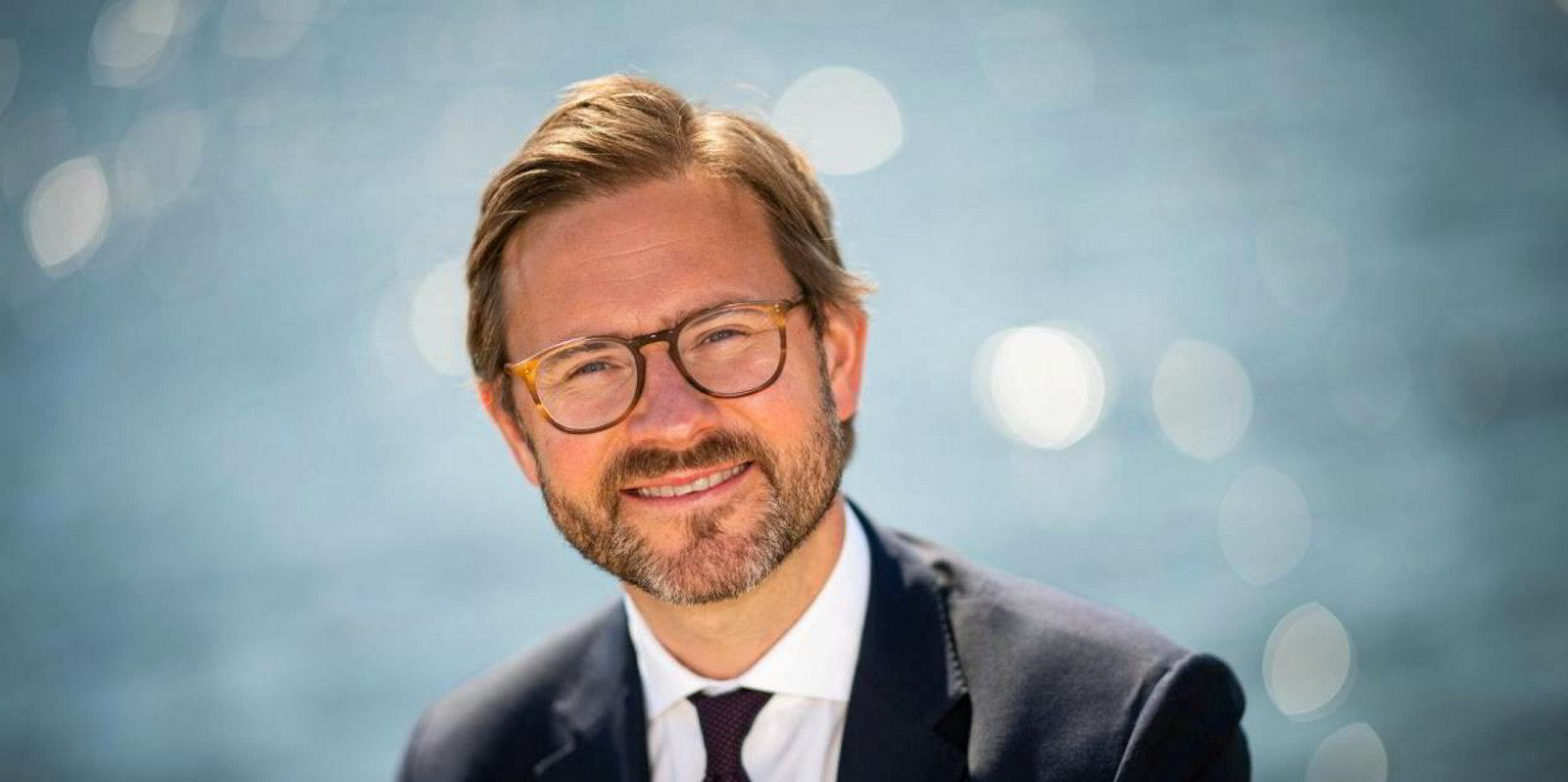Germany’s Hamburg Commercial Bank (HCOB) is looking to step up its lending to the offshore and car carrier market to counterbalance a drop in new shipping lending.
The private equity-controlled company is looking to modestly increase its involvement in sectors of the maritime industry from where it has been absent.
The plan is being crafted at a time when cash-rich owners in the container, tanker and dry bulk sectors have been paying down loans.
“What we are planning in 2023 is to expand our view of business,” said HCOB’s global head of shipping Jan-Philipp Rohr.
“We started last year after a long time to do again the car carrier business again,” he told TradeWinds on the fringes of the Marine Money Hamburg.
“We see the market has changed a lot over the past few years.
“Charter duration has been extended to three-to-five years. There are strong rates and a good outlook.
“We would also like to review potentially offshore sector which we have not done over the recent years,” Rohr added.
That could take the bank potentially into the lending market for supply vessels, anchor handling tugs, PSVs, and other offshore craft.

The shift is partly prompted by the conflict with Russia-Ukraine which has prompted a high demand for alternative energy sources.
Geopolitical influence
The changing geopolitical scenario is expected to boost the offshore sector for at least the next decade, Rohr believes.
“We see positive market developments, at least for a time,” he said.
“We consider there are opportunities for us because the market is not as liquid as in the past on the financing side.
“We would like to diversify the portfolio more in that direction.”
The shift is also directed by the good times that shipowners in traditional shipping segments have been enjoying.
Rising interest rates make financing costs more expensive, while shipping markets have been at levels where clients have the cash to make repayments, says Rohr.
“We have seen huge repayments due to vessel disposals: clients have sold their assets and often repay their loan,” he said.
That is why the current book of shipping assets stands at €3.5bn ($3.73bn) down from €3.7bn a year ago.
Despite the slight reduction in assets, the shipping division remained profitable with net profit of €77m ($83m) for 2022, up from €62m in 2021.
“It was a very profitable, very good year, we were benefitting from the healthy transactions we have done in the past,” he said.
That includes interest income from deposits as clients left part of the cash they generated with the bank.
Lower targets
Going forward, HCOB has lowered its target for new shipping lending in the coming year.
That is largely due to the cooling shipping market and lower ship values.
“We were expecting that the shipping market in some segments would go down this year. That is why we have slightly reduced our new business targets to roughly €1.2bn this year,” he said.
The new target is down from €1.6bn gross new business in 2022 and €1.9bn in 2021.
Rohr expects that is likely to mean growth in the new business for offshore and car carriers will be modest.
“We will be happy to do deals in the offshore industry with a total volume of €150m to €200m. I think that could fit the risk profile that fits into our expectations.”
The bank has already diversified on a geographical basis. Greek owners account for around 30% of shipping business, more than the 25% from the German market.
Last year, around 50% of the new business came from Greece. That is partly down to the focus on secondhand business.
Rohr considers the newbuilding sector considered too risky, with too many questions over the fuel or engine types in the coming decades.
“At least for us it’s a better risk position to go forward,” says Rohr.
“Currently we have an energy crisis in Europe. We first have to sort that and then invest in green fuels like methanol and ammonia.
“For the time being there is a shortage of supply of green fuel and it is too expensive,” he said.
Shipping remains a core part of the former HSH Nordbank which turned in a strong group net profit of €425m, up from €351m in 2021.
The former state-owned bank was bought in November 2018 for $1.2bn by a consortium led by Cerberus Capital Management and JC Flowers.







